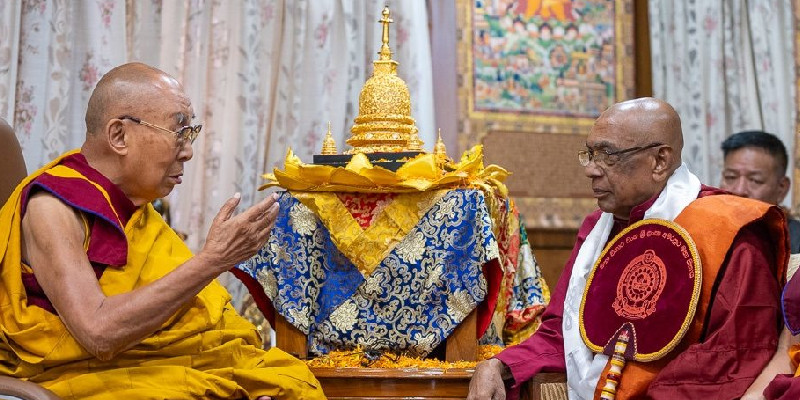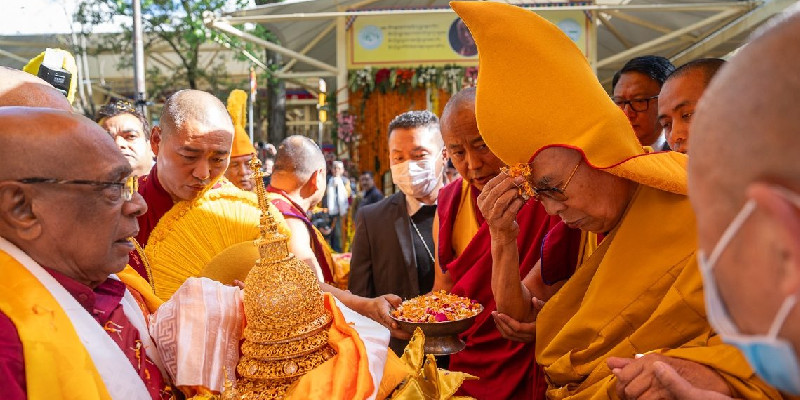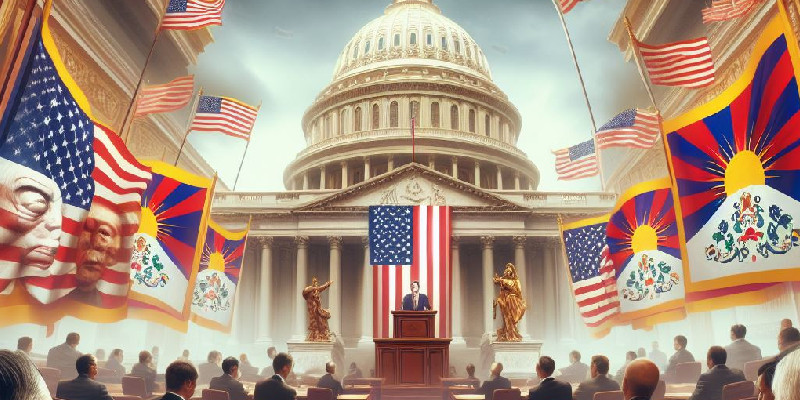7th April: In an unprecedented move, the Honourable Member of Parliament Mr. Jamyang Tsering Namgyal introduced a Private Member’s Bill in the Lok Sabha on April 1, 2022, to put the Tibetan well known as Bhoti Language in the Indian constitution’s 8th Schedule. This is a proud moment for the Bhoti communities in Indian Himalayan regions such as Ladakh, J&K, Himachal Pradesh, Uttarakhand, Sikkim, Darjeeling WB, Assam, Mizoram, and Arunachal Pradesh, among others.
Bhoti is a literary language with a distinct script and a long and illustrious history. It was written by Acharya Thonmi Sambhota in 632 CE and is still used in Ladakh, Himachal Pradesh, Uttarakhand, Sikkim, West Bengal, and Arunachal Pradesh across the Indian Himalayas.
Throughout the Himalayan region, the Bhoti language is the foundation of our faith and culture. It is the language of our Buddhist scriptures, the Kangyur and Tengyur, as well as the everyday prayers and rituals of hundreds of thousands of Indians. Bhoti would become an official language of India if this Bill passes. It might then be utilized in all official correspondence as well as in all stages of education and tests.
“I believe this is a vital step in the preservation of the Himalayan language and culture. Therefore, I ask all of you who have the opportunity to support this Bill.” His Holiness the 17th Karmapa also posted about the move on his Facebook page.
Sh. Jamyang Tsering Namgyal, in his statement of objectives, emphasized Bhoti Language as a rich treasure containing a mosaic of societal identity, a sign of respect, a reflection of history, Himalayan culture, governance system, and symbiotic relationship with ecology, among other things. The Bhoti language has its own alphabet, which is used throughout India’s Himalayan states as well as Nepal, Bhutan, Tibet, China, and Mongolia. The establishment of the Bhoti language bill, according to JTN, is aimed at developing the Himalayan region’s socio-cultural and linguistic identity in order to prosper the traditional, modern, and contemporary lives of Himalayan people while also contributing to the enrichment of Indian culture.







Leave a Reply